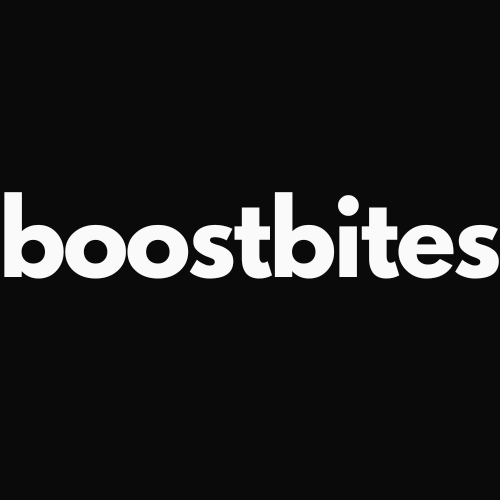If you’re new to supplements, walking into the world of creatine can feel overwhelming. What is it really? Is it safe? Does it make you bulky? Do you need to load it? How do you even take it?
These are the questions every beginner asks - and unfortunately, most of the internet answers them with half-truths, gym bro anecdotes, or outdated science.
This blog is different. We’re going to walk you through exactly what creatine is, how it works, what to expect, and how to use it properly from day one - all from a clean, no-BS perspective grounded in research and real-world application.
So whether you’re starting your first training plan, want to recover better, or just want to feel more energized and consistent - creatine deserves your attention. And we’ll help you understand why.
What Is Creatine and Why Do Beginners Use It?
Creatine is a naturally occurring compound found in your body and in foods like red meat and fish. Your liver produces a small amount daily, and your muscles store it as phosphocreatine - a quick-charge battery used to regenerate ATP (your body’s primary energy currency).
When you move explosively - like sprinting, lifting, jumping, or even pushing a heavy shopping cart - your muscles tap into ATP for power. Creatine helps recycle ATP faster, meaning you get:
- More reps in the gym
- Stronger contractions
- Better endurance under fatigue
And here’s the kicker: creatine is not just for “hardcore” athletes. It helps anyone build strength, improve energy output, recover faster, and even think more clearly - yes, it benefits your brain, too.
That’s why beginners love it. It makes starting a workout routine feel more powerful and productive - with better results and less burnout.
What Does Creatine Actually Do in Your Body?
Creatine works on a cellular level. It increases your muscles’ store of phosphocreatine, which helps quickly regenerate ATP. This doesn’t mean you’ll instantly lift more - but it does mean you’ll:
- Train harder before fatigue sets in
- Recover faster between sets
- Push higher volumes over time
- Experience less soreness and more consistency
Beyond physical training, creatine also affects the brain:
- It supports cognition under stress
- Reduces mental fatigue
- Helps maintain clarity during sleep deprivation or long workdays
This makes it useful not just for gym performance - but also for mental focus, productivity, and stress management.
Is Creatine Safe for Beginners?
Yes - creatine is one of the most researched supplements in the world. It’s been studied for over 30 years across thousands of trials.
What we know:
- It doesn’t affect your hormones
- It doesn’t damage kidneys or liver in healthy individuals
- It doesn’t cause dependency or withdrawal
- It doesn’t cause hair loss unless you're genetically prone and megadosing (and even then, evidence is weak)
In fact, most doctors and sports scientists consider creatine safer than pre-workouts, fat burners, or even high caffeine intake.
Common Creatine Myths Beginners Should Ignore
Here are the top 5 creatine myths - and why they’re false:
Myth 1: Creatine makes you bloated
Truth: Creatine increases intracellular water, meaning water is stored inside your muscles - not under your skin. This makes you look fuller, not puffier.
Myth 2: You have to load 20g/day for a week
Truth: Loading is optional. You can just take 4.5g/day consistently. Results take a few weeks, but they’re the same.
Myth 3: It’s only for lifters or athletes
Truth: Creatine helps anyone - runners, students, moms, busy professionals - build lean tissue, fight fatigue, and stay consistent.
Myth 4: It causes acne, hair loss, or aggression
Truth: None of these side effects are consistently supported by science.
Myth 5: You have to cycle off creatine
Truth: Creatine works best when taken daily without interruption. No cycling is needed.
What Creatine Feels Like for Beginners
This is important: creatine is not a stimulant. You won’t “feel” it hit like caffeine or pre-workout.
But after 2-3 weeks of consistent use, most people notice:
- More energy near the end of workouts
- Better performance under fatigue
- Faster recovery between sessions
- Less soreness and more volume over time
It’s a slow-burn, high-return supplement. Subtle at first, but powerful when used consistently.
How to Take Creatine Properly as a Beginner
Daily Dose
- Take 4.5g of creatine monohydrate daily (not 5-10g)
- BoostBites are pre-dosed at 4.5g per gummy - no measuring required
Timing
- Doesn’t matter. Morning, evening, pre- or post-workout - just pick a time you’ll remember.
Consistency
- Take it every day, even on rest days. Creatine works by saturation - skipping breaks the effect.
Hydration
- Drink 2.5-3.5L of water per day to support absorption and reduce cramping risk
Avoid
- Overloading
- Sugary creatine blends
- Underdosed pre-workouts with “proprietary blends”
More: Creatine Gummy Dosage
People Also Ask: Beginner Creatine FAQs
How long should beginners take creatine?
As long as you want to maintain its benefits. Most people take it year-round.
Is creatine better before or after a workout?
Post-workout may offer slight uptake advantage, but timing doesn’t matter much - consistency is key.
Do I need creatine if I’m not lifting?
Yes - creatine helps with energy, recovery, and cognition even without resistance training.
See: Can You Take Creatine Without Working Out?
Can I stop creatine once I start?
Yes - you can stop any time. Just know the effects will slowly diminish over a few weeks as your saturation drops.
Why BoostBites Are Ideal for Creatine Beginners
Starting with powders can be confusing:
- You have to measure and mix
- They often taste bad or cause bloating
- They may include junk (sugars, fillers, dyes, or caffeine)
BoostBites eliminate all of that:
- 4.5g creatine monohydrate per serving
- Vegan, sugar-free, stimulant-free
- No bloating, no mess, no scooping
- Tastes good - helps build the habit
They’re also perfect for:
- College students
- Women starting fitness plans
- New gym-goers
- Runners or hybrid athletes
Try BoostBites Creatine Gummies or view the full collection
Bonus: What Happens If You Miss a Day?
Creatine doesn’t work like caffeine - you don’t “crash” if you miss a dose.
But to maintain saturation, it’s best to:
- Take it every day
- Resume the next day if you forget
- Don’t panic - just be consistent going forward
Read more: What Happens If You Stop Taking Creatine?
Final Thoughts: Creatine Is the Smartest First Supplement You Can Take
It’s not hype. It’s not dangerous. It’s not complicated.
Creatine is the most studied, safest, and most effective foundational supplement for strength, energy, mental focus, and consistency.
If you’re just starting out, this is your green light. Add it to your routine, stay consistent, and let the results build over time.
Try BoostBites Creatine Gummies - and make smart, daily strength part of your life from day one.




